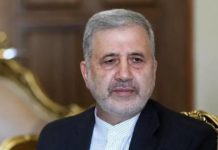di Francesco Cirillo –
Si è spento all’età di 79 anni il sultano dell’Oman, Qabus bin Said al-Said, dopo aver guidato il paese mediorientale per 49 anni secondo una visione improntata sullo sviluppo economico e sulla modernizzazione, ma anche su un ruolo di mediatore ad esempio tra la Repubblica Islamica dell’Iran, i paesi del Medio Oriente, la Cina e la Russia e l’occidente, Usa compresi. Sulla questione iraniana Qabus è intervenuto per facilitare gli incontri tra l’amministrazione Usa e Teheran, divenendo elemento essenziale per la promozione l’accordo sul nucleare del 5+1, (Jpcoa). Nel 2018 ha ricevuto in visita il premier israeliano Benjamin Netanyahu, un evento che non accadeva nel mondo arabo da decenni.
Ha utilizzato i proventi dell’estrazione del petrolio per costruire strade, ospedali ed infrastrutture, conquistando il favore della popolazione (oggi conta un milione e 400mila abitanti). Ma soprattutto ha dato il via al progetto “Oman 2040”, pensato per riscattare la dipendenza economica del paese dagli idrocarburi, cercando così di diversificare l’economia. Tale progetto è stato affidato al cugino Haitham bin Tariq al-Said, oggi 65enne, il quale prenderà il suo posto sul trono in quanto il sovrano è deceduto senza aver messo al mondo figli.
Per comprendere la scomparsa di Qabus, un breve commento di Cinzia Bianco Research Fellow del European Council on Foreign Relations (ECFR), che ringraziamo per la disponibilità.
“First of all, the royal family was relatively quick in agreeing to a successor. This portrays externally a show of unity that is very important in a volatile region and vis-à-vis concerns that neighbors would have likes to interfere in the process. Instead they closed ranks.
Secondly Sayyid Haitham was among the candidates that were considered more likely to succeed to Sultan Qaboos for years. He has a quiet personality and an immense culture. Oxford-educated and very close to the British royals, he lacks the military background that the other major candidates have. He has instead a background as Minister of Culture and Heritage, several positions in the Foreign Affairs Ministry in the course of decades and as head of the Committee for OMAN Vision 2040. This is crucial because socioeconomic reforms and reforms of political economy are the most important challenges for Oman struggling with his high deficit, international debt, youth unemployment. Although he has a mixed record in business ventures, with at least one famous failure on the Blue City Project, Sayyid Haitham has important links with the business families in Oman and can influence them to get on board the changes.
Finally, there were at least two younger candidates in the mix. Choosing Sayyid Haitham sends a message of continuity instead of one of youthful disruption. On questions of regional and foreign policy it is this very likely that Oman will go ahead in the same course of action“.













